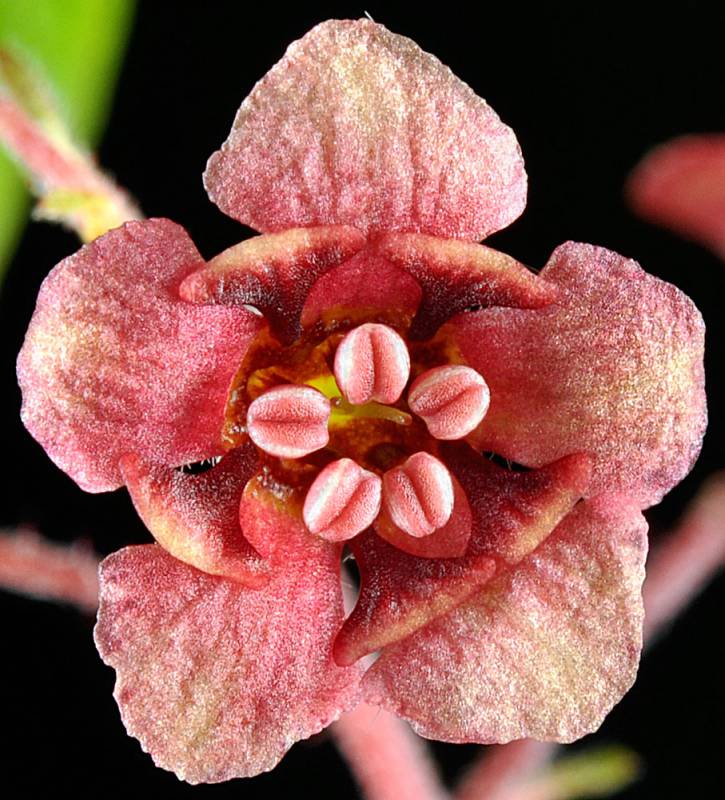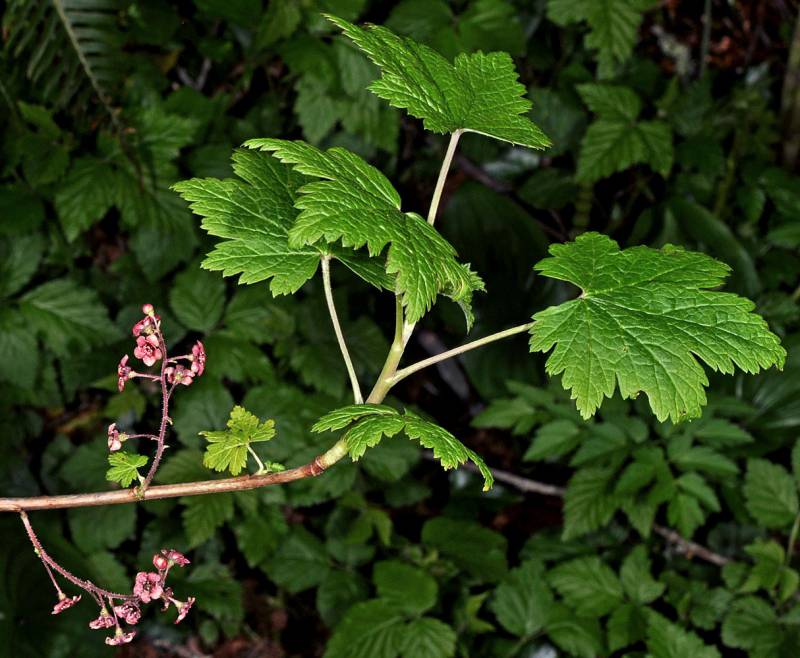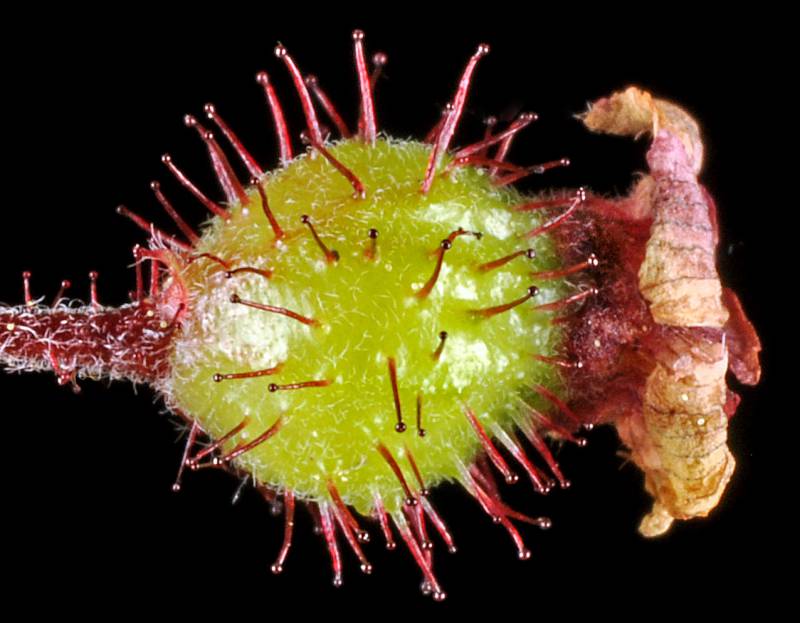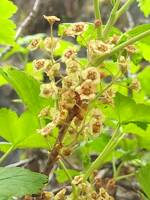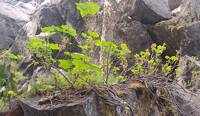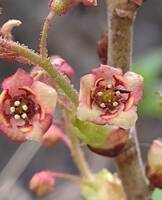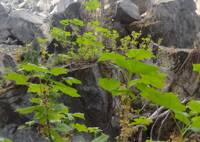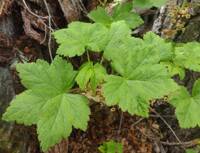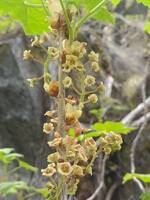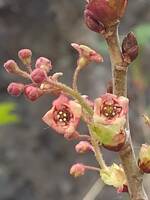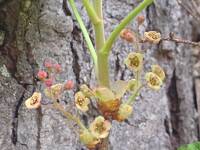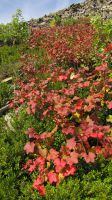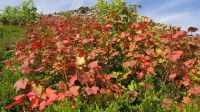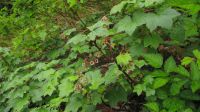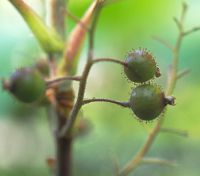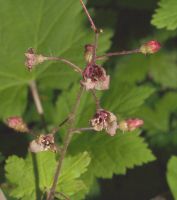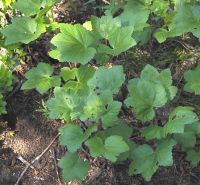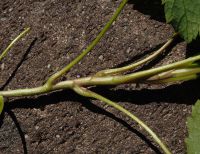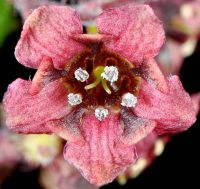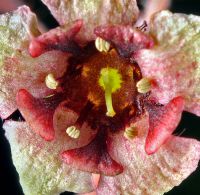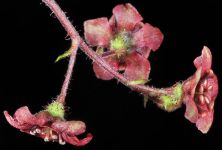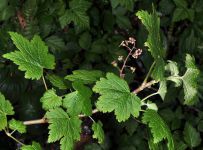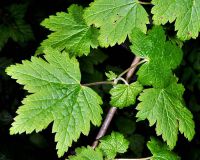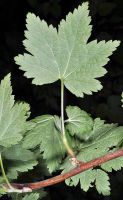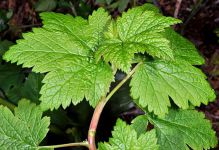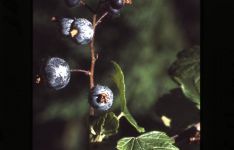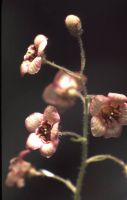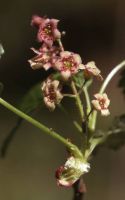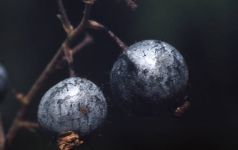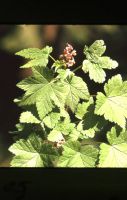Distribution: Occurring on both sides of the Cascades crest in Washington; Alaska to California, east to the Rocky Mountains.
Habitat: Coastal woodlands to montane slopes.
Flowers: April-July
Origin: Native
Growth Duration: Perennial
Conservation Status: Not of concern
Pollination: Bumblebees, bees, hummingbirds
Decumbent or spreading shrubs, usually under 1 m. tall, the young branches finely puberulent, becoming reddish-brown.
Leaves alternate, long-petiolate, the blades palmately veined, deeply cordate, 4-8 cm. broad and long, glabrous above, with short-stalked, non-crystalline glands below, 5-lobed half their length, the segments ovate-triangular and serrate with rounded teeth.
Inflorescence 8- to 18-flowered, erect to ascending, racemose, shorter than the leaves, puberulent, and with reddish, stalked glands throughout; pedicels up to 1 cm. long, jointed just below the ovary; calyx tube shallowly bowl-shaped, 1 mm. long, lined with a thick, flat, 5-lobed reddish disk that covers the top of the ovary; 5 calyx lobes 2.5-3 mm. long, deltoid-ovate, spreading, greenish-white, with a pinkish to purplish tinge; petals purplish-red, 1.0-1.5 mm. long and broad, reniform, clawed; stamens 5, equaling the petals; styles glabrous, united half their length.
Berry glaucous, purplish-black, ovoid, 1 cm. long, glandular-bristly.
Filaments of R. laxiflorum are reddish.
Publication: Fl. Amer. Sept. 2: 731. 1813.
PNW Herbaria: Specimen records of Ribes laxiflorum in the Consortium of Pacific Northwest Herbaria database
WA Flora Checklist: Ribes laxiflorum checklist entry
OregonFlora: Ribes laxiflorum information
E-Flora BC: Ribes laxiflorum atlas page
CalPhotos: Ribes laxiflorum photos

